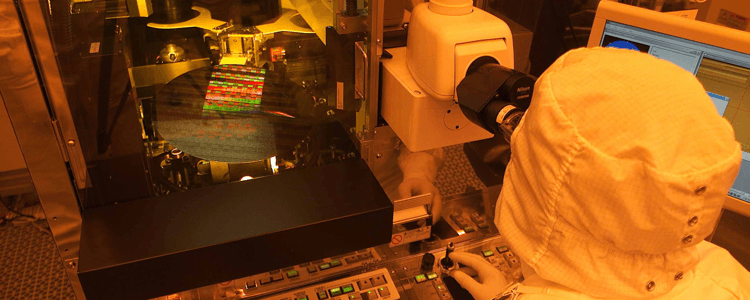Intel has traditionally designed and built chips for its own use, but starting in 2010 the company began allocating a small portion of their plant capacity to grow a contract-manufacturing business. So far they've done field-programmable gate array (FPGA) chips for companies like Achronix and Altera, and starting next year they'll expand on one of their existing relationships to include a quad-core part based on the ARM architecture.
Specifically, the Stratix 10 SoC will be manufactured for Altera on Intel's most advanced 14-nanometer process, and will be based on ARM's 64-bit Cortex-A53 platform. Intel says it's the first such chip to be manufactured by anyone and the first 14nm Tri-Gate chip out of their fabs, as even Haswell uses 22nm with the Tri-Gate process.
Here's an extract with a few technical details from the press release:
The Cortex-A53 is among the most power efficient of ARM's application-class processors, and when delivered on the 14 nm Tri-Gate process will achieve more than six times more data throughput compared to today's highest performing SoC FPGAs. The Cortex-A53 delivers important features, such as virtualization support, 256TB memory reach and error correction code (ECC) on L1 and L2 caches. Furthermore, it can run in 32-bit mode, which will run Cortex-A9 operating systems and code unmodified, allowing a smooth upgrade path from Altera's 28 nm and 20 nm SoC FPGAs.
Source: Altera
Like other Altera products, the chip is targeted at high-end networking and communication equipment and other specialized applications, so it won't be competing directly with the likes of Samsung, Nvidia, or Qualcomm in the mobile space. Nevertheless, the news is still seen as kind of a big deal, given it marks the first time Intel will fabricate chips based on an architecture that competes with directly with x86.
An agreement to start production of ARM-based SoCs seems at odds with the Intel's efforts to break into smartphones and tablets with Atom, but it could offer a backdoor of sorts into large-scale production of chips for mobile devices. After all, Intel has been open about their contract manufacturing efforts, and rumors about the company chasing Apple to produce their ARM-based SoCs have been flying around for some time.
Cupertino is using Samsung-built 64-bit A7 ARM chips to power their newest iPhone 5s, but the company has been looking to lower the uncomfortable dependency it has with its main smartphone rival for supplies and get the manufacturing diversification it needs. For now we've only heard of Apple adding TSMC into the mix but for the right price they might eventually enlist Intel's leading-edge fabs as well.
